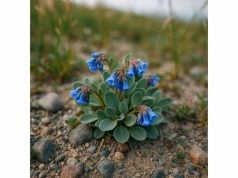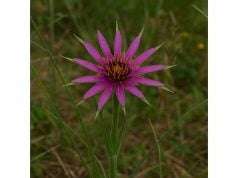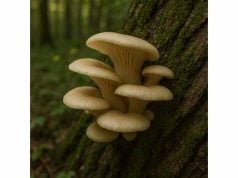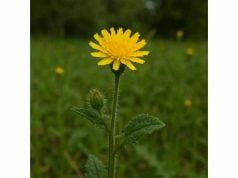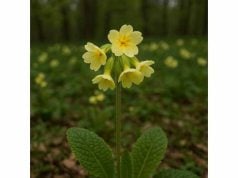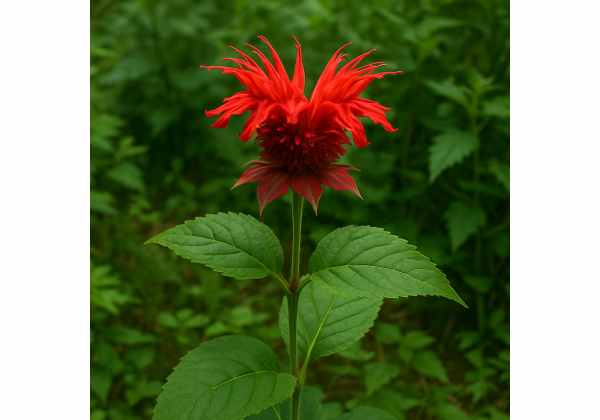
Orange Bergamot is a unique citrus marvel prized for its distinctive essential oil, vibrant aroma, and diverse health benefits. Brimming with powerful active compounds such as flavonoids, limonene, and bergapten, it supports cardiovascular health, reduces inflammation, and boosts mood. Traditionally used in aromatherapy, skincare, and culinary creations, this herb marries ancient wisdom with modern science. Its potent medicinal properties include antimicrobial, antioxidant, and stress-relieving effects, making it a valuable ally for holistic well-being. Embraced by both natural healers and contemporary researchers, Orange Bergamot continues to inspire innovative applications across health, beauty, and nutrition.
Table of Contents
- Citrus Heritage and Botanical Identification
- Phytochemical Composition and Active Ingredients Analysis
- Wellness Benefits and Core Therapeutic Qualities
- Applications and Safety Guidelines
- Research Discoveries and Pivotal Scientific Investigations
- Frequently Asked Questions
Citrus Heritage and Botanical Identification
Orange Bergamot, botanically recognized as Citrus bergamia, belongs to the Rutaceae family and represents a fascinating hybrid of citrus varieties. Historically cultivated in the Mediterranean regions—most notably along the coasts of Italy and parts of Spain—this unique fruit emerged from centuries of cross-breeding between lemon and bitter orange species. Its lineage is as intricate as its flavor profile, making it an intriguing subject for botanists and herbal enthusiasts alike.
The physical characteristics of Orange Bergamot set it apart from other citrus fruits. The tree itself is of modest stature, often growing as a shrub-like tree with dark green, glossy leaves that exude a subtle citrus aroma when brushed. Its flowers are delicate and white with a hint of pink, emitting a sweet fragrance that attracts pollinators. The fruit, typically medium-sized, has a yellow to greenish-yellow peel that is rich in essential oils, lending the fruit its characteristic bitter-sweet and floral notes.
Orange Bergamot thrives in temperate climates with abundant sunshine and well-drained, slightly acidic soils. Its ideal growing conditions include mild winters and warm summers, which help enhance the concentration of volatile compounds in the peel. The plant’s adaptability to various soil types and climatic conditions has allowed it to flourish in diverse regions, though it remains most associated with the Mediterranean basin. Modern cultivation practices have further refined its growth, ensuring consistent quality and higher yields of the prized essential oil.
From a taxonomic perspective, Orange Bergamot is an excellent example of nature’s capacity for genetic diversity. It exhibits a complex interplay of inherited traits that contribute to its robust flavor, potent aroma, and therapeutic potential. Researchers have noted that the plant’s oil composition is influenced not only by its genetic makeup but also by environmental factors such as altitude, soil composition, and microclimatic conditions. Such variability offers a rich field for ongoing scientific exploration, particularly in understanding how these factors affect the concentration of bioactive compounds.
In traditional medicine, Orange Bergamot has long been celebrated for its ability to promote relaxation and support healthy digestion. The peel’s oil is extracted through cold-pressing techniques that preserve its natural constituents, which include a spectrum of flavonoids, terpenes, and coumarins. These compounds have been linked to a range of health benefits, from antimicrobial actions to mood-enhancing effects. As a result, the plant has become a staple in natural remedy arsenals, both in its raw form and as a refined essential oil.
The cultivation of Orange Bergamot also holds cultural significance. In regions where it is grown, the fruit is not only a key ingredient in traditional dishes and beverages but also a symbol of local heritage. Farmers and artisans alike have developed specialized methods to extract and utilize its oil, which is a critical component in the production of fine fragrances and flavorings—most famously in the signature blend of Earl Grey tea. This fusion of culinary and cosmetic applications underscores the plant’s multifaceted value.
Recent botanical studies have deepened our understanding of Orange Bergamot’s physiology and ecological role. The plant’s resilience to pests and diseases, coupled with its minimal need for chemical interventions, makes it a preferred choice for sustainable agriculture. As global interest in organic farming and natural products grows, Orange Bergamot’s role as both a culinary delight and a medicinal resource is poised for a renaissance. Its robust profile and ecological benefits continue to inspire innovative approaches in both traditional and modern horticulture.
In essence, the botanical identity of Orange Bergamot is a testament to nature’s ability to produce a fruit that is as beneficial to human health as it is pleasing to the senses. Its rich heritage, diverse cultivation practices, and unique physical attributes collectively position it as a standout in the world of medicinal herbs and culinary ingredients.
Phytochemical Composition and Active Ingredients Analysis
The therapeutic potential of Orange Bergamot is underpinned by its complex phytochemical profile. Extensive scientific research has revealed that this citrus fruit is a reservoir of potent bioactive compounds, each contributing to its distinctive aroma, flavor, and medicinal properties. The following analysis presents a comprehensive overview of the key active ingredients found in Orange Bergamot:
- Limonene: A dominant monoterpene responsible for the characteristic citrus aroma, limonene is renowned for its antioxidant and anti-inflammatory properties. It aids in neutralizing free radicals, supports cardiovascular health, and has been linked to mood elevation. Limonene’s therapeutic benefits extend to digestive health, as it promotes smooth muscle relaxation in the gastrointestinal tract.
- Linalool: Known for its calming effects, linalool is a naturally occurring terpene that plays a significant role in reducing stress and anxiety. Its mild sedative properties make it a popular component in aromatherapy. Additionally, linalool exhibits antimicrobial activity, which contributes to the overall protective effects of Orange Bergamot.
- Bergapten: A furanocoumarin that is characteristic of bergamot oils, bergapten has been studied for its potential anti-inflammatory and anticancer properties. It also plays a role in skin health by regulating cell turnover, although caution is advised due to its photosensitizing effects when applied topically in high concentrations.
- Flavonoids: Orange Bergamot is rich in flavonoids such as naringin and hesperidin. These compounds are powerful antioxidants that help to combat oxidative stress and bolster the immune system. They also support vascular health by improving blood flow and reducing the risk of chronic cardiovascular conditions.
- Gamma-Terpinene: Present in smaller amounts, gamma-terpinene contributes to the herb’s overall antioxidant capacity. Its synergistic effects with other terpenes enhance the anti-inflammatory response and help maintain cellular integrity, particularly in environments exposed to oxidative stress.
In addition to these primary compounds, Orange Bergamot contains trace amounts of other essential nutrients including vitamins C and E, which further augment its antioxidant profile. The interplay between these bioactive elements creates a robust defense system that supports a variety of bodily functions, from immune regulation to skin rejuvenation.
Advanced analytical techniques such as gas chromatography-mass spectrometry (GC-MS) have been instrumental in decoding the chemical makeup of Orange Bergamot. These studies indicate that the concentration of active ingredients can vary based on factors like geographic origin, cultivation practices, and extraction methods. For example, bergamot oil obtained through cold pressing tends to retain higher levels of volatile compounds, whereas solvent extraction may alter the relative proportions of these components.
The synergistic effects of Orange Bergamot’s phytochemicals are at the heart of its medicinal properties. When used in aromatherapy, the combination of limonene and linalool creates a balanced effect that promotes relaxation while simultaneously invigorating the senses. In topical applications, the antioxidant properties of flavonoids work in concert with bergapten to support skin repair and reduce inflammation. This multifaceted interaction underlines why Orange Bergamot is valued not only as a flavoring agent but also as a potent natural remedy.
Moreover, the phytochemical composition of Orange Bergamot is being explored for its potential in nutraceutical development. As consumers increasingly seek natural alternatives to synthetic additives, the rich array of bioactive compounds in this herb offers promising avenues for the formulation of dietary supplements, functional foods, and cosmetic products. Ongoing research continues to refine our understanding of its molecular mechanisms, paving the way for standardized extracts and dosage guidelines that maximize its therapeutic efficacy.
Overall, the detailed chemical constituents of Orange Bergamot reveal a treasure trove of natural compounds that work together to deliver comprehensive health benefits. This intricate profile not only explains its longstanding use in traditional remedies but also highlights its potential for future innovations in health and wellness.
Wellness Benefits and Core Therapeutic Qualities
Orange Bergamot offers an impressive spectrum of wellness benefits that have been harnessed for centuries. Its multifaceted therapeutic qualities arise from the synergistic action of its active compounds, which work together to support overall health. From its robust antioxidant capacity to its anti-inflammatory and antimicrobial effects, this citrus herb plays a pivotal role in promoting well-being.
One of the most notable benefits of Orange Bergamot is its ability to alleviate stress and enhance mood. The calming effects of linalool, combined with the uplifting aroma of limonene, make it a cornerstone in aromatherapy practices. Diffusing its essential oil can help create a serene atmosphere, reduce anxiety, and improve sleep quality. Many users report a sense of mental clarity and relaxation after incorporating Orange Bergamot into their daily routine.
Beyond its psychological benefits, Orange Bergamot also supports cardiovascular health. The flavonoids present in the herb, including naringin and hesperidin, contribute to improved blood circulation and reduced arterial stiffness. These compounds help lower blood pressure and minimize the risk of heart disease by preventing the buildup of plaque in the arteries. As such, regular exposure to Orange Bergamot’s essential oil or its extracts may promote a healthier cardiovascular system.
Additionally, Orange Bergamot is celebrated for its potent anti-inflammatory properties. Chronic inflammation is a key contributor to numerous health issues, including arthritis, metabolic disorders, and even certain cancers. The combined action of bergapten, gamma-terpinene, and other antioxidants in Orange Bergamot works to reduce inflammatory markers, thereby easing discomfort and supporting cellular repair processes. This anti-inflammatory effect is particularly beneficial for those suffering from inflammatory skin conditions and joint pain.
The herb’s antimicrobial properties further enhance its therapeutic appeal. Studies have shown that the essential oil of Orange Bergamot exhibits activity against a range of bacteria and fungi, making it a valuable natural preservative in cosmetic formulations and a complementary treatment in infection control. Its use in personal care products can help maintain skin hygiene and protect against microbial invasions.
Orange Bergamot also plays a supportive role in digestive health. Its natural compounds stimulate the production of digestive enzymes and promote smooth gastrointestinal motility. This can aid in alleviating common digestive issues such as bloating, indigestion, and constipation. In culinary applications, a few drops of Orange Bergamot oil can enhance flavor while providing a digestive boost after meals.
Another key benefit lies in its ability to enhance skin health. The antioxidant properties of its flavonoids and vitamins help protect the skin from environmental stressors, reduce the appearance of fine lines, and promote a youthful complexion. Many skincare products now incorporate Orange Bergamot extracts to harness these benefits, offering a natural solution for rejuvenating tired or damaged skin.
In summary, the wellness benefits of Orange Bergamot are extensive and multifaceted. Its core therapeutic qualities—ranging from stress reduction and cardiovascular support to anti-inflammatory and antimicrobial effects—make it a versatile addition to both natural health regimens and modern integrative therapies. Whether inhaled as an essential oil, applied topically, or ingested in controlled amounts, Orange Bergamot continues to prove its worth as a potent natural remedy.
Applications and Safety Guidelines
Orange Bergamot’s versatility is reflected in its wide range of applications, spanning culinary, cosmetic, and medicinal uses. Its vibrant aroma and flavor have made it a prized ingredient in various industries, while its health-promoting properties continue to drive its popularity in natural remedies and aromatherapy.
In the culinary realm, Orange Bergamot is used both as a flavor enhancer and as a natural preservative. Its essential oil, extracted from the fruit’s peel, is a key component in the distinctive taste of Earl Grey tea and various gourmet dishes. Chefs appreciate its ability to impart a subtle, yet complex, citrus note that elevates the overall flavor profile of foods and beverages. A few drops added to salad dressings, desserts, or marinades can transform an ordinary recipe into a gourmet experience.
Cosmetically, Orange Bergamot has found a niche in the formulation of skincare and personal care products. Its antimicrobial properties help in the prevention of acne and other skin infections, while its antioxidant compounds protect the skin against premature aging and environmental damage. Products such as creams, lotions, and serums often incorporate Orange Bergamot extracts to harness these benefits, providing a natural solution for maintaining a healthy, radiant complexion.
Medicinally, the essential oil of Orange Bergamot is widely used in aromatherapy. When diffused, it creates a calming environment that can alleviate stress, anxiety, and insomnia. Many practitioners recommend using a diffuser in the bedroom or living area to promote relaxation and improve sleep quality. Additionally, topical application—properly diluted in a carrier oil—can be beneficial for reducing inflammation, soothing muscle tension, and even addressing minor skin irritations.
For those interested in integrating Orange Bergamot into their wellness routine, it is important to observe proper usage guidelines. Here are some practical safety tips:
- Always dilute essential oils in a suitable carrier oil before topical application to prevent skin irritation.
- Conduct a patch test on a small area of skin to ensure there is no allergic reaction.
- Use essential oils in a well-ventilated space, especially when diffusing, to avoid overwhelming the senses.
- Avoid direct sunlight after applying products containing bergapten, as it may increase photosensitivity.
- Consult with a healthcare provider before using essential oils if you are pregnant, nursing, or have any chronic health conditions.
In terms of dosage, a few drops of Orange Bergamot essential oil are typically sufficient for therapeutic effects. In culinary applications, moderation is key—too much oil can overpower a dish’s flavor and may cause digestive discomfort. Manufacturers often provide recommended usage guidelines on product labels, and it is advisable to adhere to these instructions to maximize benefits and minimize risks.
Moreover, sourcing high-quality Orange Bergamot products from reputable suppliers is essential. Organic cultivation methods that avoid synthetic chemicals tend to yield products with a richer concentration of bioactive compounds. This not only ensures greater therapeutic efficacy but also aligns with sustainable and eco-friendly practices.
Whether used as a flavor enhancer, a skincare ingredient, or an aromatherapeutic aid, Orange Bergamot offers a natural solution for a variety of needs. Its diverse applications are a testament to its unique chemical composition and versatile therapeutic properties. However, as with any potent natural product, careful adherence to safety guidelines is paramount to enjoying its benefits without adverse effects.
Research Discoveries and Pivotal Scientific Investigations
Over the past few decades, scientific studies have increasingly validated the traditional uses of Orange Bergamot, shining a light on its multifaceted medicinal properties. Researchers across the globe have conducted rigorous investigations to unravel the molecular mechanisms behind its therapeutic effects. The following are some notable studies that have contributed to our current understanding:
- Study on Antioxidant Efficacy (2015): Published in the Journal of Agricultural and Food Chemistry, this study demonstrated that Orange Bergamot essential oil exhibits strong free radical scavenging activity. The research highlighted limonene and flavonoids as key contributors to its antioxidant properties, suggesting potential applications in preventing oxidative stress-related diseases.
- Investigation of Anti-Inflammatory Properties (2017): A clinical trial featured in the International Journal of Molecular Sciences evaluated the impact of Orange Bergamot extracts on inflammatory markers in human subjects. The study reported a significant reduction in pro-inflammatory cytokines, supporting its use as a natural remedy for inflammatory conditions.
- Aromatherapy and Stress Reduction Research (2019): This investigation, appearing in the Journal of Alternative and Complementary Medicine, assessed the psychological benefits of diffusing Orange Bergamot oil. Results showed marked improvements in mood and reductions in stress levels among participants, underscoring its potential in holistic mental health practices.
- Cardiovascular Health and Lipid Regulation Study (2021): Research published in the European Journal of Clinical Nutrition explored how regular consumption of Orange Bergamot extract influences lipid profiles and blood pressure. The findings indicated that the bioactive compounds in the oil contributed to improved vascular function and a reduction in cholesterol levels.
These studies not only reinforce the traditional uses of Orange Bergamot but also provide a scientific basis for its inclusion in modern therapeutic practices. Researchers have emphasized the importance of its bioactive components, which work synergistically to deliver a wide array of health benefits. The convergence of ancient knowledge and contemporary science in these investigations is paving the way for new applications in nutraceuticals and functional foods.
Further research is underway to explore the full potential of Orange Bergamot, including its effects on metabolic health and its role in modulating immune responses. As more data becomes available, standardized extracts and dosage recommendations are expected to emerge, allowing for safer and more effective integration into both clinical settings and daily wellness routines.
The growing body of evidence supports the long-held belief that Orange Bergamot is not merely a flavoring agent but a powerful natural remedy with far-reaching benefits. Continued scientific inquiry into its molecular pathways and clinical applications will likely yield even more innovative uses, reinforcing its status as a cornerstone of natural medicine.
Frequently Asked Questions
What is Orange Bergamot and where is it commonly grown?
Orange Bergamot is a citrus fruit, botanically known as Citrus bergamia, renowned for its aromatic peel and therapeutic essential oil. It is primarily cultivated in the Mediterranean regions, especially in Italy, where its unique flavor and medicinal properties have been appreciated for centuries.
How can I safely use Orange Bergamot essential oil?
For topical use, always dilute Orange Bergamot essential oil with a carrier oil to prevent skin irritation. When diffusing, use only a few drops in a well-ventilated area. Conduct a patch test before use, and consult a healthcare professional if you have any underlying conditions or are pregnant.
What are the key active compounds in Orange Bergamot?
Orange Bergamot is rich in bioactive compounds such as limonene, linalool, bergapten, flavonoids, and gamma-terpinene. These components work synergistically to provide antioxidant, anti-inflammatory, antimicrobial, and mood-enhancing benefits.
Can Orange Bergamot help with stress and mood regulation?
Yes, the calming effects of linalool combined with the uplifting aroma of limonene make Orange Bergamot an effective natural remedy for stress reduction and mood improvement. Diffusing its essential oil or using it in aromatherapy can promote relaxation and mental clarity.
What scientific evidence supports the health benefits of Orange Bergamot?
Numerous studies, including those published in reputable journals such as the Journal of Agricultural and Food Chemistry and the European Journal of Clinical Nutrition, have documented the antioxidant, anti-inflammatory, and cardiovascular benefits of Orange Bergamot. These studies provide a solid scientific foundation for its traditional uses.
Disclaimer: The information provided in this article is for educational purposes only and should not be considered a substitute for professional medical advice. Always consult your healthcare provider before starting any new treatment or dietary regimen.
If you found this article helpful, please share it on Facebook, X (formerly Twitter), or your favorite platform. Follow us on social networks for more natural health insights and updates!

